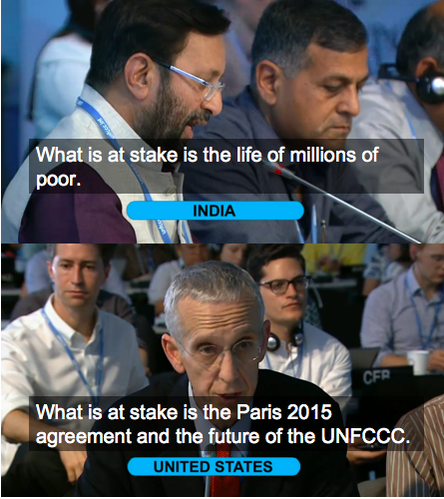The word “compromise” has been used indiscriminately at the closing plenary session for the ADP over the past few hours. While the Co-Chair advocates compromise in order to reach an agreement in due time, I don’t think that any of the developed countries speaking today understand what “compromise” really means.
Here, as a reminder, is what the definition of the word means according to the Merriam-Webster Dictionary:
noun
noun: compromise; plural noun: compromises
- an agreement or a settlement of a dispute that is reached by each side making concessions.
Here’s where developed countries think compromise is: they think it’s about giving a little bit to get almost everything that they want. Compromise, however, cannot be unbalanced. It is absolutely ridiculous, and injust, to expect developing and vulnerable countries to compromise and concede their livelihoods, communities, and futures in the name of reaching an agreement that developed countries can live with.
The United States is using compromise as an excuse to push through these negotiations, stating that we have no time to meet everyone’s needs. The irony is that the US talks about its own compromises in regards to the ADP text, when in reality they have nothing to lose or compromise on.
There is no such thing as a “compromise” for developed countries here. They have the means with which to coast through climate change; they are not the ones who are directly impacted. And they are causing the problem.
Until developed countries such as Canada and Australia acknowledge their improper use of the word and the unbalanced “compromise” at these negotiations, there will be no progress. And no credibility to this process.

Pingback: warehousing()